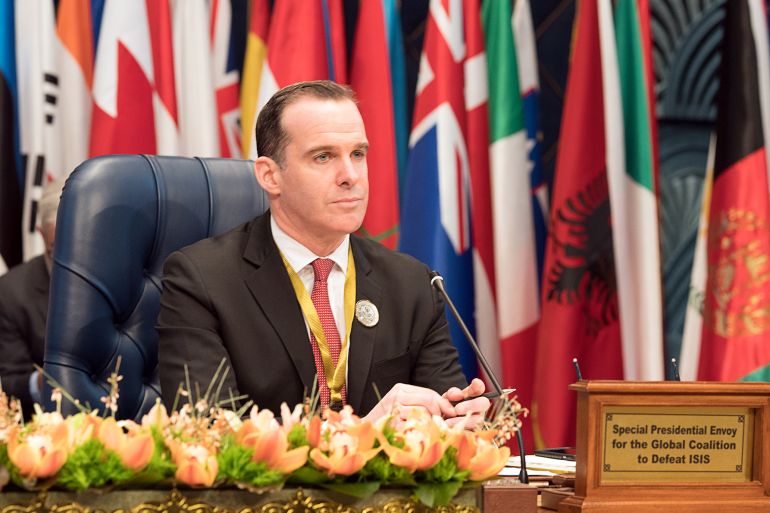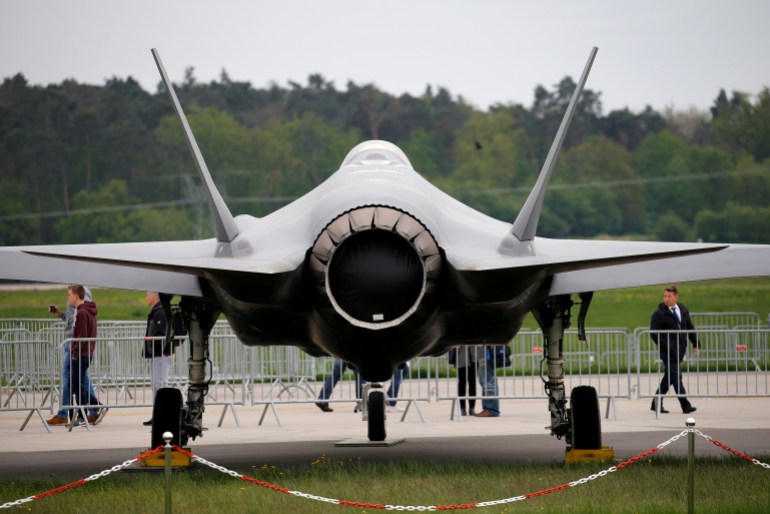Senior US envoys head to Middle East amid concerns over Iran deal
President Biden’s attempt to resurrect the Iran nuclear deal, de-escalation of regional tensions on the agenda.

A team of US envoys is travelling to the Middle East this week for talks with key allies – including tentatively Saudi Arabia, the United Arab Emirates, Egypt and Jordan – to address simmering concerns about President Joe Biden’s bid to re-join the Iran nuclear deal.
The delegation will be headed by the White House’s Middle East coordinator, Brett McGurk, and State Department counsellor Derek Chollett, the Reuters and Bloomberg news services reported citing senior US officials.
Keep reading
list of 4 itemsIran nuclear talks: What you need to know
Iran nuclear talks to continue amid ‘new understanding’
Iran nuclear talks closer to ‘practical steps’ in Vienna
“A senior interagency delegation will be traveling over the coming week to discuss a number of important matters related to US national security and ongoing efforts toward a de-escalation of tensions in the Middle East region,” a senior US official familiar with the trip said on Wednesday.
While the final itinerary was not firm, there were tentative plans for the team to visit Saudi Arabia, the United Arab Emirates, Egypt and Jordan.
The officials are also expected to discuss the administration’s decision to go ahead with the sale to the UAE of $23bn in military hardware including 50 F-35 fighters and 18 military drones.

Some US legislators have criticised the UAE for its involvement in the war in Yemen, a conflict considered one of the world’s worst humanitarian disasters, and worried that the weapons transfers might violate US guarantees that Israel retain a military advantage in the region.
The Biden administration has been a stark departure for Israel and Arab allies from the Trump presidency. Trump’s team negotiated normalisation deals between Israel and the UAE, Bahrain, Sudan and Morocco, but the Biden team has not seemed as interested.
Some US allies in the region are troubled by Biden’s attempt to re-join the Iran nuclear deal, fearing a resumption of the accord may eventually allow Tehran to acquire atomic weapons and change the power structure in the region.
“They were vehemently against the deal and going right back into it is something that would alarm them,” said a former senior administration official.
Iran, the United Kingdom, China, France, Germany and Russia began a third round of meetings in Vienna this week aimed at agreeing on steps that would be needed if the agreement, which was abandoned by former President Donald Trump in 2018, is to be revived.
Earlier this month, Iran’s foreign ministry rejected a request by the Gulf Cooperation Council (GCC) to include demands in the 2015 nuclear deal with world powers, accusing them of trying to derail the continuing talks in Vienna.
Iran foreign ministry spokesman Saeed Khatibzadeh denounced the “irresponsible and immature” statement earlier this week by the GCC that said the talks must address concerns about Tehran’s enrichment programme in addition to the participation of the regional bloc in the talks.
McGurk is a known diplomat in the Middle East. He was former President Barack Obama’s specially envoy for the military coalition against ISIL (ISIS). He resigned during the Trump administration and was brought back to the White House by Biden.